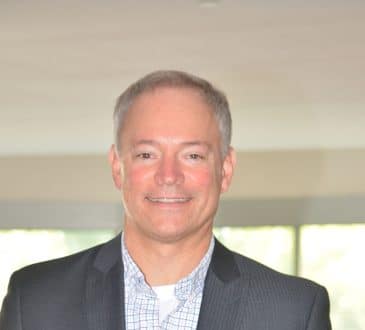Honor Gordon Moore: Unite Across Party Lines to Fuel Innovation

Maintaining America’s innovation edge is crucial, but bureaucratic excesses at the federal level could slow us down. As Steve Jobs, founder of Apple, once said, “Innovation distinguishes between a leader and a follower.”
To maintain the United States’ position as a technological superpower, bipartisan cooperation is needed to redesign our regulatory process to align with the speed of innovation. With the growing threat of China and economic turmoil, there is a great opportunity for both parties to work together towards this common goal.
The current regulatory systems were largely developed with different technological capabilities and priorities. Many were put into place before many Google and Tesla computer scientists and engineers were born! The pace of technology is faster than it was in the past. The outdated nature of our rulemaking becomes even more apparent with the advent of the latest discoveries which require different approaches and frameworks for effective regulation.
Regulatory agencies face difficulties keeping up with and adjusting their rules and procedures to accommodate new developments, which can make it challenging and expensive for American investors and innovators to get new products designed to address complex challenges like health and wellness and climate through regulatory barriers.
If leaders in high-tech, energy or biotech could wave a magic wand to completely redesign our regulatory system from scratch, it is highly unlikely they would choose to design it in the current manner.
The regulatory system is inefficient, slow, and incomprehensible to the average entrepreneur and existing precedence may no longer easily apply. For example, Scott Gottlieb, MD, the former Commissioner of the Food and Drug Administration, noted the current regulation of lab tests is outdated, and it requires the agency to regulate a test based on where it is produced, rather than the complexity or potential risk leading to patients and clinicians overestimating the oversight and test developers.
The debate about regulating small modular nuclear reactors (SMRs) is ongoing with some arguing for the same regulatory framework as a traditional nuclear power plant while others like Bret Kugelmass founder of the Energy Impact Center advocate for a more streamlined and flexible approach that considers the unique characteristics of SMRs. A balance must be struck between ensuring safety and managing risks, while also promoting innovation and flexibility to address energy stability and climate change.
Technologists don’t claim to have all the answers, but we do know that technology and scientific discovery have grown at an exponential rate since Gordon Moore, co-founder of Intel Corporation, revolutionized technology with his most famous contribution, Moore’s Law, which predicted that the number of transistors on a computer chip would double every year. He was cited by the Wall Street Journal as helping to fuel “a golden age of American innovation”.
Moore’s legacy reminds us of the importance of investing in innovative products that can change the world, and the people who design those products. In honor of his legacy, a bipartisan commission could be introduced to revamp the regulatory framework to better align with product innovation.
The innovation mindset has already created a generation of young engineers who believe there are no limits to what can be done. The launch of a new iPhone, ChatGPT, or a new Tesla create a buzz unlike any other. Those moments remind us why building products with great design at a price point the average person can purchase or from which people can benefit underscores the power of a free capitalist society.
This is why we must protect our technological advantage by unleashing our best and brightest to generate brilliant ideas and move them to market quickly while establishing adaptable standards that don’t hinder innovation.
Innovation is a core part of the American DNA, and we must focus on results that expand research and development, unleashing the ability of companies to produce profits required to fund it. By addressing restrictions, and reframing success around achieving goals in a timely and cost-effective manner, we can keep innovation alive and maintain the US advantage.
Written by Lisa Gable.
Have you read?
World’s most travel-obsessed countries.
World’s most Twitter-obsessed countries.
World’s most popular luxury brands.
World’s most fast food-obsessed countries.
Richest Sports Owners in the World?
Bring the best of the CEOWORLD magazine's global journalism to audiences in the United States and around the world. - Add CEOWORLD magazine to your Google News feed.
Follow CEOWORLD magazine headlines on: Google News, LinkedIn, Twitter, and Facebook.
Copyright 2025 The CEOWORLD magazine. All rights reserved. This material (and any extract from it) must not be copied, redistributed or placed on any website, without CEOWORLD magazine' prior written consent. For media queries, please contact: info@ceoworld.biz








